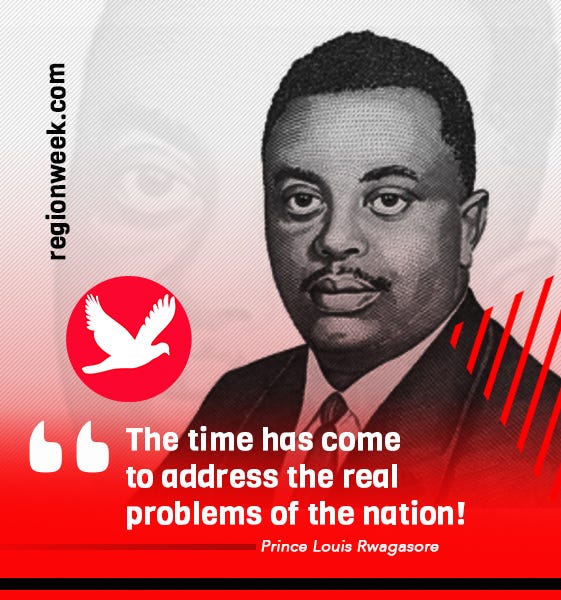New evidence: Belgian officials in Burundi orchestrated the assassination of Prince Louis Rwagasore
RegionWeek Newsletter Vol VI, Issue #196 | Thursday, January 6th, 2022
This is RegionWeek Newsletter, the content targets Business leaders, Decision-makers, and Young professionals with interests in Burundi and East Africa. Subscribe to stay productive, and competitive in a pandemic and disrupted season.
Dear Readers,
The Belgian state has an “overwhelming responsibility” for the assassination of Rwagasore, reports the Guardian quoting Ludo De Witte, a Flemish sociologist who has spent five years investigating the killing. His previous work on the assassination of Congo’s first elected prime minister, Patrice Lumumba, led to a parliamentary inquiry that concluded Belgium had a “moral responsibility” for the death of the charismatic leader.
In his new book, “Murder in Burundi”, De Witte explores unseen documents from archives in Brussels and London that expose Belgium’s hand in Rwagasore’s assassination, an event that shattered peace between ethnic groups, leading to decades of war and instability in the landlocked central African country.
According to the Guardian, De Witte argues that the role of the Belgian state was never properly examined, not by the Belgian colonial court, the newly independent government of Burundi, or the United Nations, which all conducted inquiries into the killing.
The difference between Lumumba and Rwagasore Assassination
De Witte sees differences in the culpability of the Belgian elite in the two assassinations he has investigated. In the case of Lumumba, killed also in 1961, the Belgian elite had “a direct and concrete responsibility in the assassination”, De Witte said. In the case of Rwagasore, events were orchestrated by Belgian officials in Burundi while Brussels turned a blind eye.
In his research, De Witte found that Roberto Régnier, the Belgian resident (governor), convened a crisis meeting of senior Belgian officials and CDC allies, where he delivered a chilling message.
“Rwagasore must be killed,” he said. His words were taken as an invitation by the CDC.
Régnier’s words were confirmed by four participants in a 1962 investigation by the crown prosecutor of Brussels. But that report was never published and was left gathering dust until De Witte came across it.
The first clue of the report’s existence was found in a dispatch from Britain’s then-ambassador to Burundi, James Murray. Writing in 1962, Murray told London that some senior Belgians had had “an almost pathological hatred” of Rwagasore, who they believed would harm Belgian-Burundian relations. He recalled Régnier’s “words which go very far in the direction of incitement to murder”.
RegionWeek is an Independent media project based in Burundi that needs resources to operate at its full potential. You can contribute now, and help the RegionWeek team to publish consistently. Click this link.
Burundi wants Germany and Belgium to pay €36 billion ($42.6 billion) in reparations
In August 2020, Belga News Agency reported that the state of Burundi has asked Belgium and Germany to provide reparation payments ( $43 billion) to make up for crimes committed in the country during the colonial era (1924-1962). At the same time, Burundi has requested to reopen the investigation into the murder of Burundi Prince Louis Rwagasore in 1961.
In addition to paying reparations, Burundi wants Belgium to return stolen artifacts that were taken between 1899 and 1962, quoting Burundi’s Senate report, Brussels Time said that Burundi is prepared to take the case to an international court, though it is currently unclear which court would then be qualified to take the case.
The Burundi government also recommended composing a team of Belgian, German, and Burundi experts to examine how colonial rule affected the current ethnic tensions between different Burundi population groups and tribes, and how to overcome this issue. Deutsche Welle reported that Belgium is planning to set up a panel of experts to advise its administration on how to deal with its colonial history.
Thanks for reading
Fabrice Iranzi, Editor in Chief | RegionWeek.com
This is the free briefing version. To participate and get to the Zoom Briefing session, you need to join our Premium member Club. (Please contact +25771939153, WhatsApp, Telegram).
The Zoom Briefing session is an opportunity to ask questions about news stories covered by RegionWeek & Partners and to hear from experts on various topics of Interest for Burundi and East Africa.




